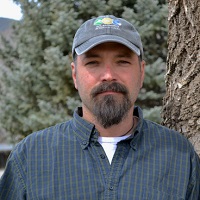Degrees Without Borders: Online Programs in Solar Energy & Installation
The future is bright. Solar energy is a non-polluting, renewable energy source capable of transforming entire communities. Solar energy has math on its side: the cost of solar energy drops by approximately 22 percent for every doubling of cumulative capacity. As a result, there’s been an increase in demand for solar energy and installation experts. By illustration, the Bureau of Labor Statistics projects that the number of jobs in this field will more than double between 2016 and 2026. According to a report from Stanford University, it’s not impossible for entire countries to make radical switches to renewable-only energy consumption over the next 30 years.
But the thought leaders in renewable energy don’t necessarily reside within the United States. For example, despite being 28 times larger than Germany, the U.S. has less installed solar capacity than its European ally. France, Denmark, and the Netherlands all have a head start in the renewable energy space.
That said, today’s learning models are set up such that geography doesn’t matter nearly as much as it did a decade ago, and students can now learn from industry experts online and with the same rigor as a typical classroom. It’s never been easier to get into an in-demand job with a positive impact than it is now with solar energy and installation. Read on to get started.
Fast Facts: Why are Solar Energy Skills Important?
- Job Opportunities. No job in the U.S. is growing faster than that of solar photovoltaic installer. According to the BLS, the field is expected to grow 106 percent between 2016 and 2026, adding over 11,000 jobs. Getting started now means you’ll beat the curve, and likely have more experience than half of the field in just a few years.
- Flexible Learning. In such a high-demand area, there’s less need for expensive, advanced degrees. Online certificate courses—some of which are free—can build enough competency in an area to begin work quickly. Whether you’re just starting out, or switching careers, there are a plethora of options to get you there.
- Positive Impact. Solar energy doesn’t cause air pollution, water pollution, or greenhouse gases. It’s cheap enough that it can empower rural communities across the globe. Whether you take your solar energy skills to the developing world, or put them to use in suburban America, you’re contributing to a cleaner, more equitable future.
Mentors: Three Solar Energy & Installation Gurus to Know

Chris Brooks is an instructor at Solar Energy International, where he leads a course on appropriate technology for the developing world. He is a certified solar PV installer through the North American Board of Certified Energy Professionals (NABCEP), and he received his MS in renewable energy from Murdoch University.
While serving as a Peace Corps volunteer in Ecuador, Chris fostered an interest in renewable energy as a way forward for sustainable development in rural areas. In the intervening years, he’s helped design, install, and train for solar projects in Asia, Africa, and the Americas. After Hurricane Maria damaged power lines in Puerto Rico, Chris helped install solar inverter systems on existing AC water pumps to get clean water to local communities. When not traveling the world to lend a helping hand, Chris makes his home in the Puget Sound region of Washington, where he works for a solar installation company: Sun’s Eye Solar.

Dr. Jeffrey R. S. Brownson is an associate professor of energy and mineral engineering at Pennsylvania State University, where he teaches classes in solar resource assessment and economics, and classes in the design of solar energy conversion systems. He received his MS in geology and his PhD in environmental chemistry and technology—both from the University of Wisconsin, Madison.
Dr. Brownson’s research interests include solar resource management, community solar integration, and materials synthesis for photovoltaic devices. His numerous publications have been cited over 500 times in the last five years. Notably, Dr. Brownson served on the board of directors of the American Solar Energy Society, where he advocated for the voices of students and faculty, and, in 2014, he won the Wilson Award for Excellence in Teaching.

Dr. Arno H. M. Smets is a professor of solar energy in the photovoltaics material and devices group at Delft University of Technology in the Netherlands, where he teaches bachelor’s- and master’s-level classes in photovoltaics and sustainable energy. His edX course on solar energy has drawn in over 150,000 students from across the world.
Dr. Smets’s global experience is bolstered by his five years as a visiting researcher at the National Institute of Advanced Industrial Science and Technology (AIST) in Japan. He received his PhD from Eindhoven University in 1997. His research is primarily focused around the processing of thin silicon films and other innovative materials and concepts with photovoltaic applications. When it comes to solar energy, Dr. Smets quite literally wrote the book on the subject, as he is the co-author of Solar Energy: The Physics and Engineering of Photovoltaic Conversion Technologies and Systems. For his exceptional contributions in online teaching and learning, Dr. Smets was awarded the first-ever edX Prize.
Online Solar Energy & Installation Programs
Solar Energy International (Certificate Program)
SEI is a nonprofit educational organization that provides industry-leading technical training in renewable energy. Students may take courses individually, or choose to pursue the solar professionals certificate program, which consists of nine required courses and a training progression.
Other certificate programs are available in the following areas: residential and commercial PV systems, battery-based PV systems, and solar and technical sales. Some of SEI’s online offerings under the “solar training” category include: solar electric design and installation (grid-direct); advanced PV system design and the NEC (grid-direct); PV system fundamentals (battery-based); solar business and technical sales; advanced PV multimode and multigrid design (battery-based); tools and techniques for operations and maintenance; and advanced PV standalone system design (battery-based).
Each class lasts for six weeks and requires ten to 20 hours of study per week. SEI also hosts four-day labs at its Paonia, Colorado campus.
- Tuition: $8,555 to $10,805 in total
- Location: Paonia, Colorado
Penn State World Campus (Graduate Certificate)
Pennsylvania State University’s World Campus has an online graduate certificate in solar energy that prepares graduates to lead project development in the solar energy sector. As a standalone credential, the 12-credit program takes a full systems perspective of solar energy projects, from financing to material design to energy distribution.
Students take two required courses: 1) solar resource assessment and economics and 2) solar project development and finance. Two electives are then chosen from the following options: solar thermal energy for utilities and industry; utility solar power and concentration; distributed energy planning and management; or commercial solar electric systems.
- Tuition: $10,634 total
- Location: University Park, Pennsylvania
Penn State World Campus (Master’s Degree)
For those looking for a deeper dive into solar energy—perhaps transitioning from a different career but looking to take on a leadership and project direction role—Penn State’s World Campus has an online master of professional studies (MPS) in renewable energy and sustainability systems (RESS) where students can choose to focus in solar energy.
This 32-credit program covers the technical depth of renewable energy, as well as the social, economic, and project development aspects of the technology. Core classes cover areas like the foundations of sustainability systems, the ethical dimensions of renewable energy and sustainability systems, and energy markets and regulation.
The solar energy concentration includes courses such as solar project development and finance; distributed energy planning and management; solar thermal energy for utilities and industry; and commercial solar electric systems. The program concludes with a capstone project where students use a case study approach to perform a systems analysis on the management and design of a real-world renewable energy project.
- Tuition: $886 per credit
- Location: University Park, Pennsylvania
DIY Skill-Building in Solar Energy & Installation
The future of education—like that of renewable energy—is cheaper, smarter, and more customizable. DIY skill-building courses from online educational websites mean that you don’t need to sign up for an expensive or lengthy curriculum to get a basic understanding of solar energy and installation. These options are often self-paced, low-cost (sometimes even free), and can result in an official certificate from a university with experts who specialize in the subject of solar energy. Check them out below.
edX: Delft University of Technology
Delft University is the oldest and largest technological university in the Netherlands, a renewable energy leader. For those looking for a holistic study of solar energy, this is the choice, as Delft’s online edX course in solar energy teaches students to design a complete photovoltaic system.
The course is divided into eight parts: an introduction to solar energy; working principles of a semiconductor-based solar cell; solar cell operation, performance, and design rules; PV technology based on crystalline silicon wafers; thin-film PV technologies; third generation PV and other ways to utilize solar energy; PV systems components and concepts; and PV systems application and design.
The learning modules consist of several eight- to 12-minute lecture videos, five assignments, and three graded exams. The course textbook is provided online, free of charge. The course lasts eight weeks, requires between six to eight hours of study per week, and costs $50 for an official certificate of completion.
Coursera: Technical University of Denmark
For those seeking a comprehensive introduction to the topic of solar cells, the Technical University of Denmark (DTU) has a five-week class on Coursera that strikes the right balance between the technical and the introductory.
The course is divided into ten parts: a history of solar cells, the benefits of solar energy, power from solar cells, modelling a solar cell, the mechanics of a solar cell, the efficiency of solar cells, silicon solar cells, thin film solar cells, polymer solar cells, and other solar cell technologies.
Through hands-on exercises, expert interviews, and academic resources, students gain a fundamental understanding of the field. The five-week program requires only two to three hours of study per week, and costs $50 for an official certificate of completion.
This brief, introductory edX course in photovoltaic solar energy from École Polytechnique is divided into three parts: photovoltaic solar energy, solar cell operation, and solar photovoltaic systems. Students study the various uses of photovoltaic conversion, the different types of photovoltaic technologies currently in existence, the multiple challenges of grid integration, and the evolution of economics and financing in the photovoltaic sector. The program is only three weeks long, requiring only two to three hours of study per week. When taken for an official certificate of completion, it costs $50.
Formed through a collaboration between the U.S. Department of Labor and the U.S. Department of Energy, the Solar Training Network has set out to boost capacity in solar education across the country.
The program has partnered with over 400 community colleges, labor training centers, and high schools. As a result, it has provided solar training to over 30,000 students in the last ten years. Regional training networks exist throughout the following areas: Hudson Valley Community College, North Carolina State University, University of Central Florida, Salt Lake Community College, the California Community College System, and the University of Hawaii.

